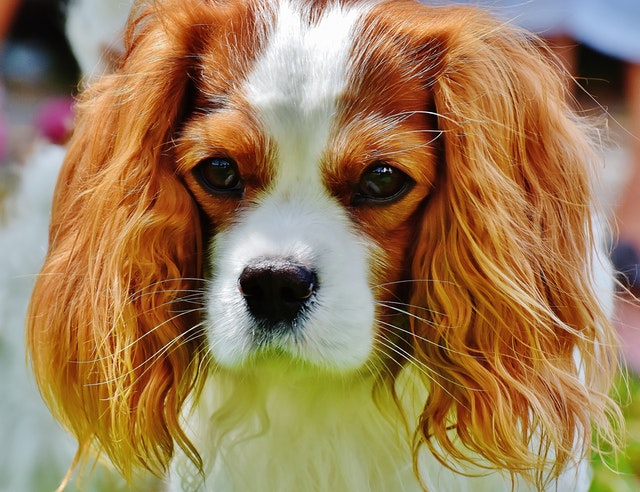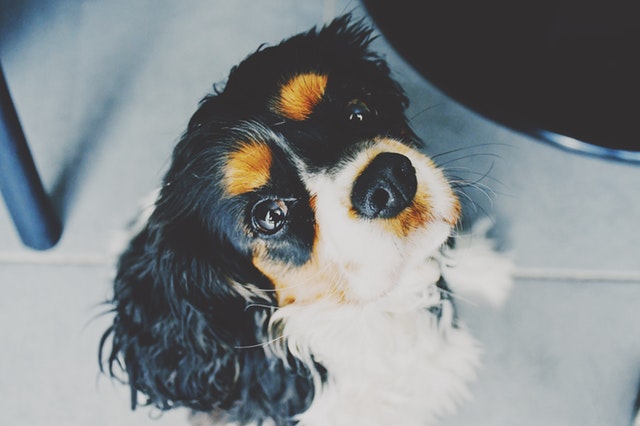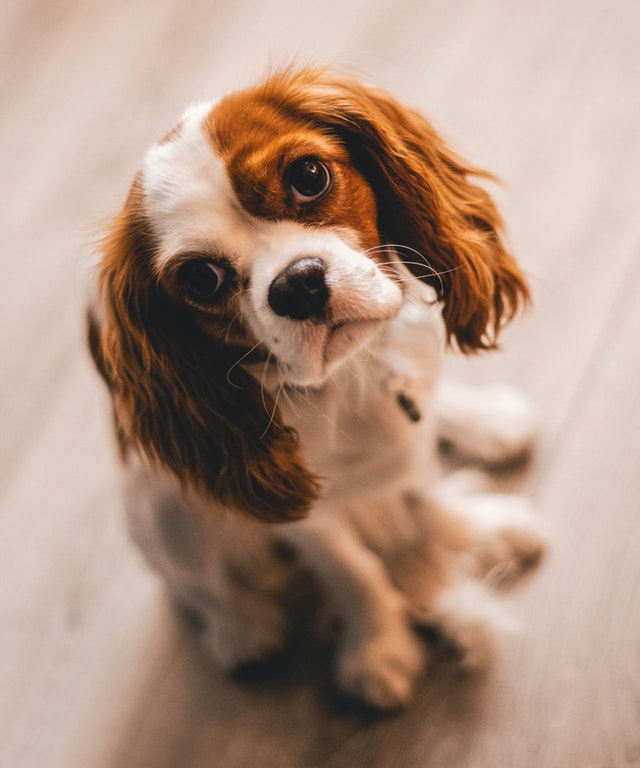A notable aspect of Cavalier King Charles Spaniel grooming is that pet trims are quite different from a show groom. In show, the breed is left virtually natural. Their hair flows, long and waving. However, it is difficult to maintain the appearance. And let’s face it, most dogs are pets. Therefore, this guide will focus on the lower-maintenance techniques that are useful to groomers and pet parents.
About the Breed
What an incredible name! Looking back to the age of the Renaissance, King Charles I and Charles II favored this type. They are recognized for their special colors. These colors include Tricolor, Blenheim, Black and Tan, and Ruby. The Tricolor version is the most common. Following is Blenheim.

Cavalier King Charles Spaniel Grooming
Prep
The first step is to brush out any tangles. If there are tangles, then they will get much worse through the bathing process.
Check for any dew claws or flaps of skin that you will want to consider during mobile dog grooming. See if the ears have excessive crust or a bad smell. These could be signs of an ear infection. Advise the pet parent to take them to the vet in this case.
Clip the nails. If they are white, then it will be easy to see where the blood vessel, or quick, is located. Therefore, it will be easy to avoid. However, if the nails are black, it can be difficult to see. In this case, clip only a small bit at a time. Focus on one paw at a time, but alternate between the nails. Start by clipping one nail a bit, then move to the next and the next. Then, return to the first nail and clip a bit more.
When you first start clipping, you will see a white pulp inside the nail. Once you see a small black dot central to the white pulp, you have reached the edge of the quick. Stop clipping at this time. Gently file around the edge of the nail, but don’t grind into the nail too much. You will cut too far into the quick if this occurs.
Bath
Place the dog in the bath and rinse thoroughly. Then, apply a canine shampoo. Follow the directions on the shampoo. It will probably need diluting. After at least two lathers and rinses, rinse completely.
Dry the dog with a towel and then blow dry. You can apply a leave in conditioner if you like.
When drying, brushing with a pin brush can help the process to go a bit faster.
Trimming and Clipping
Clear out the hair between the pads using a 40 blade. When it comes to the rest of the groom, it’s best to consider the maintenance preferences of the pet parents. Technically, the dog doesn’t even need to be trimmed, but it’s much easier to maintain if it is.
This article provides an example trim, but there is no one size-fits-all approach. Use a 3 3/4 blade over the back and down the legs.
Apply a 10 blade to the snout, and below the ears. When dealing with Cavalier ears, it’s important to clear some of the hair before applying the 10 blade to the ears. It’s best practice to use a comb attachment first to reveal any skin flaps or curves. Then apply the 10 blade to shorten the hair on the ear flap.
If you would like to trim the top of the head, then you can use the same blade as the body going with the hair growth. Some prefer to go in reverse. In this case, you can use a comb attachment so the hair isn’t cut too close. Moving in reverse cuts the length much shorter than with the growth.
Many owners like to leave the hair on the tail and the ears long. Neaten the ears by lifting them up and forming a neat curve with your curved shears. Same with the tail. Lift it and create a nice curve with a shorter length at the back and longer as you approach the body.
Use your thinners or straights to clear any extraneous hairs on the legs.
Above all, Cavalier King Charles Spaniel grooming is about keeping your pet healthy and happy.
If you are hoping for highly individualized care, check out mobile grooming services.


